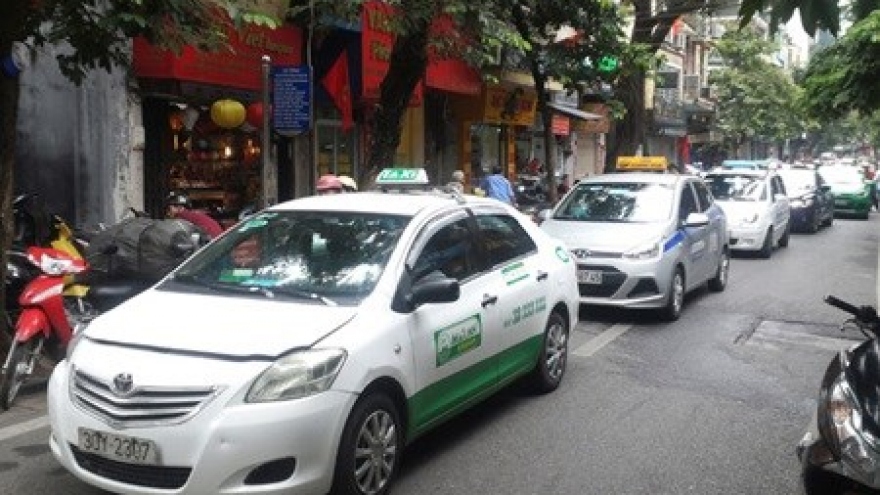Vietnamese transport companies refuse to lower fare
Though oil and gas prices in Vietnam have plummeted since the beginning of this year, transport companies across the country remain reluctant to lower their prices.
A slight decrease in transportation costs is not suitable given the drastic decline in oil and gas prices, Deputy Minister of Transport Nguyen Hong Truong said at a meeting with various transport enterprises and companies on February 22.
The drop in fares has only been recorded on 1,000 out of 4,000 routes across Vietnam, Deputy Minister Truong stated, adding that about only 300 out of the country’s thousands of taxi operators have decided to lower their charges.
These are the same firms that consistently hike their fares whenever there is a rise in oil and gas prices but rarely reduce them when petroleum cost is low, the deputy minister complained.
 |
Taxi operators in Ho Chi Minh City have decreased their rates by between VND300 (US$0.01) and VND500 (US$0.02) per kilometer since the Lunar New Year holiday, Ta Long Hy, chairman of the Ho Chi Minh City Taxi Association explained at the meeting, adding that only drivers benefit from the plunge in gasoline prices because most of them provide a fixed volume of petrol for their cabbies.
Hy received the support of Do Quoc Binh, president of the Hanoi Taxi Association.
To better manage the transportation fee, Dao Minh Duong, president of Vinasun Corporation specializing in passenger transport, suggested that authorities issue a 2% adjustment whenever oil and gas prices increase or decrease by 10%.
“Organizations that fail to comply with the regulation should be banned from operations. This solution will provide the people with transparency on transportation rates,” he continued.
Several discussions have been conducted and documents released to order transportation companies to clearly state their adjusted costs following each drop in petroleum price, according to Deputy Minister of Transport Le Dinh Tho.
While several operators have done a good job in listing new prices, some still refuse to lower their fees, raising concern amongst the public, Deputy Minster Tho said.
Gasoline prices account for 25% to 35% of fares, he elaborated, suggesting that transport businesses stop making excuses and focus on changing their fares to a suitable level.
At the end of the meeting, Deputy Minster Truong required that all operators of taxis and passenger buses in the country begin calculating new prices and publicizing them within the month of February.
He also urged the Ministry of Finance to establish simpler procedures for transport businesses to declare their new prices.
Petrol prices in Vietnam on February 18 fell for the fourth consecutive time in 2016 to the lowest level in nine years, with A92 gasoline, the most popular petrol in the country, selling at VND13,752 (US$0.61) a liter. The type of petrol ended 2015 at VND16,400 (US$0.73) a liter.
The first fuel price adjustment this year was on January 4, when petrol rates went down by VND370 (US$0.016) to VND16,030 (US$0.717) a liter.


